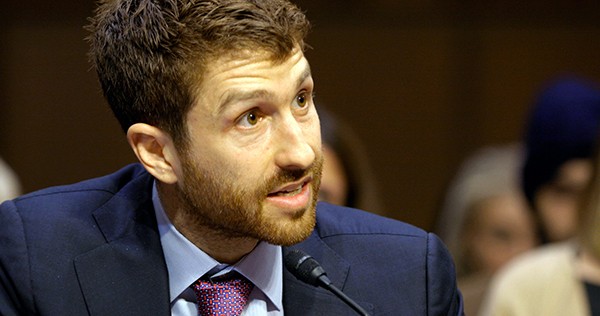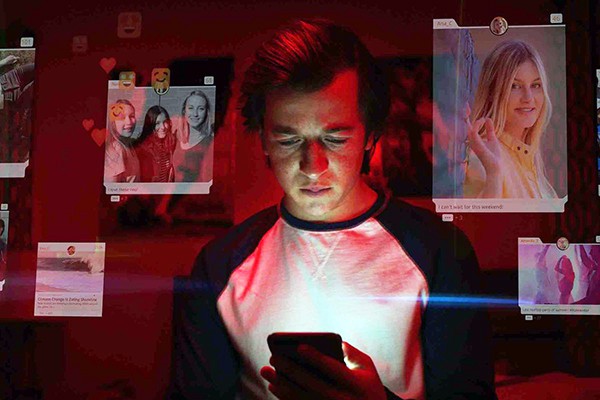Hi, my name’s Chris, and I’m a social media addict.
It started back at the dawn of the internet. I’ve always read compulsively — books, magazines, ingredient labels, whatever. So it’s no coincidence that I’m a writer. At first, the internet was just a place where I could get more stuff to read. At the turn of the 21st century, the promise of the world wide web was that it would democratize the flow of information and give everyone a voice. I frequented message boards, where the important topics of the day were discussed — by that, I mean the Star Wars prequels and Peter Jackson’s Lord of the Rings trilogy. This was social media at its most primitive — and most fun. I skipped Friendster, didn’t really get the hype of MySpace, and then dove into Flickr, the early photo-sharing site. I made friends, whom I referred to as “internet friends.” Sometimes we met IRL (in real life), but mostly we knew each other only by screen names. Then, in 2008, came Facebook, and we had to give up the privacy of our real names.

Tristan Harris, a former design ethicist at Google, testifies in Jeff Orlowski’s The Social Dilemma.
Facebook’s quick success led to the launch of Instagram and Twitter. Later, I got a very lucrative gig producing social media content. It was good for my bottom line, but now I see that being immersed in social media for eight hours a day has had a lasting effect on my psyche. Like many writers and journalists, the flow of breaking news and scalding hot takes on Twitter pushes my buttons. I have an internet friend who was offered a job at Twitter while it was still a start-up, but he decided not to take it because he says he couldn’t figure out what the app was for. I’m not sure I can answer that question today, except to say, Twitter is for more Twitter. But what is all this stuff doing to us?
What were once esoteric questions about emerging technological platforms have taken on new urgency in the increasingly chaotic world of 2020, and The Social Dilemma meets them head-on. Director Jeff Orlowski, who previously tackled climate change with his documentaries Chasing Ice and Chasing Coral, goes straight to the source. His star witness is Tristan Harris, a graduate of Stanford University’s Persuasive Technology Lab, where he studied ways to make online ads work better. While working as a design ethicist at Google, he wrote a memo entitled “A Call to Minimize Distraction and Respect User’s Attention.”
He no longer works at Google.
Harris’ basic point is that the drive to “make online ads work better” has led to a dangerous set of incentives for tech companies. “Positive intermittent reinforcement” is a powerful hack of the human brain that both powers slot machines and keeps you coming back to see who has liked your selfie. But it’s deeper than that. In order to sell ads that are guaranteed to hit their marks, Facebook and Google have created what amount to “human futures markets.” They use the reams of data they collect about you to predict your actions, and they sell that knowledge to their advertising clients. Sometimes those clients are bad actors, like Vladimir Putin. Even worse, the platforms whose business models depend on user engagement have discovered that more extreme messages produce greater engagement. From Brazil to Myanmar to right here at home, the persuasive power of social media has transformed societies, and not for the better.

Skyler Gisondo stars in one of the film’s cinematic sequences.
Harris is not alone in his remorse about what his tech work has wrought. There’s Justin Rosenstein, inventor of the Facebook “Like” button; Jaron Lanier, the father of virtual reality; and Sean Parker, Napster coder and early Facebook investor who was portrayed by Justin Timberlake in The Social Network. At one point, Steve Wozniak, cofounder of Apple, is seen in the audience as Harris delivers a speech about how social media combined with artificial intelligence is effectively “checkmating humanity.” Naturally, The Woz is checking his iPhone.
You may have heard some of these arguments before, but when Orlowski serves them all up together, it’s beyond chilling. Less effective are the cinematic sequences, where a “typical family” deals with problems like Snapchat-induced body dysmorphia and political radicalization. These parts help clarify the problems with relatable examples, but the dramatizations undermine the documentary’s claim to truth-telling even as it attacks disinformation. Quibbles aside, The Social Dilemma delivers a vital perspective on how we live both digitally and IRL.
Now pick up your phone and turn off all notifications.
The Social Dilemma is streaming on Netflix.